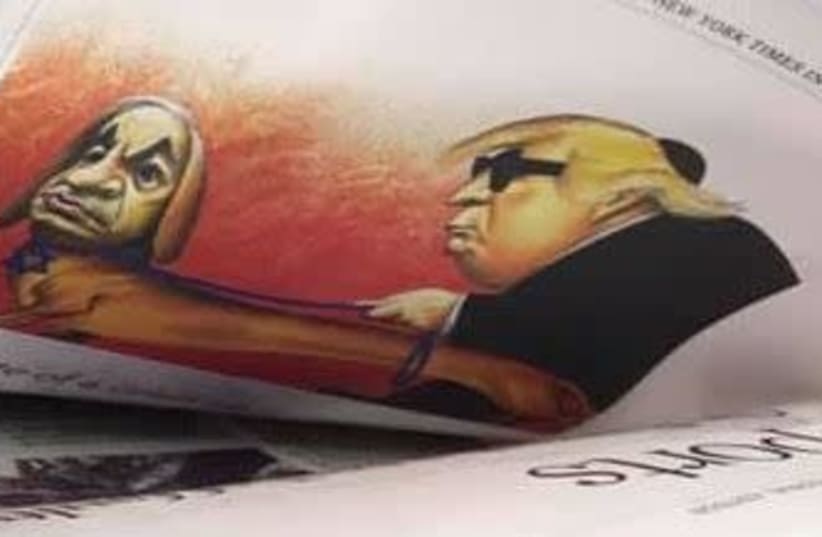António Moreira Antunes, the cartoonist purportedly behind a recent controversial cartoon in The New York Times International Edition depicting Prime Minister Benjamin Netanyahu and US President Donald Trump, has a history of divisive caricatures – including several on Israel.Antunes, who works under the mononym António, is a Portuguese cartoonist who has worked for the weekly newspaper Expresso for several decades. In a since-deleted but archived image on the New York Times syndication website, the cartoon in question is labeled as created by António and originally published in Expresso.Attempts by The Jerusalem Post to contact both the artist and the Expresso publication on Sunday were unsuccessful.António, who has been publishing editorial cartoons since 1974, created a firestorm of controversy in 1993 with a cartoon in Expresso depicting Pope John Paul II with a condom on the end of his nose. The cartoon was intended to satirize the pope’s comments that sexual chastity – not condoms – are the only way to put an end to the AIDS epidemic.More than 15,000 people at the time signed a petition calling on the Portuguese parliament to repudiate the cartoon.Ten years before his scandal over the pope cartoon, António drew the ire of Jewish groups with a 1983 caricature that won him the top prize at the 20th International Salon of Cartoons in Montreal that year. According to a JTA report from July 1983, the cartoon depicted “Israeli soldiers tormenting Lebanese women and children” in a depiction reminiscent of a famed photo of Nazis tormenting Jews during the Holocaust.
Note that Antonio Antunes Moreira (from NYT antisemitic cartoon fame) was responsible for this cartoon in 1983 comparing #Israeli treatment of #Palestinians to the Nazis' treatment of Jews - by evoking the iconic Warsaw Ghetto photoh/t @hmemcpy pic.twitter.com/tzjF3vkg4Z
— Adam Levick (@adamlevick) April 28, 2019
A spokesman for the Canadian Jewish Congress called the cartoon at the time “a defamation of the Holocaust... artistically dishonest, morally obscene and intellectually indecent.”Despite that controversy, he went on to win many more prestigious awards and stage exhibitions of his work around the world. One of Portugal’s most famous political cartoonists, António has published numerous books and has served as the chairman of the jury and director of the annual World Press Cartoon awards since it was founded in 2005. In 2012, the city of Lisbon commissioned António to draw dozens of caricatures of famous Portuguese figures to decorate its metro station at the airport.In the aftermath of the recent controversy, many on social media dug through António’s recent work, and uncovered a 2006 cartoon that some deemed antisemitic. Published during the Second Lebanon War, the cartoon depicts one leg tied up with explosives and attached to an Islamic crescent moon, and another leg – adorned with the American flag – attached to a bloody Star of David.In an interview with the Portuguese Observador in 2015, shortly after the shooting attack at the French satirical publication Charlie Hebdo, António said he would always defend the freedom of expression.
The cartoonist, Antonio Antunes Moreira, has touched on the same theme before. pic.twitter.com/f29o0AUP3O
— Elder Of Ziyon ҉ (@elderofziyon) April 28, 2019
“The profession of cartoonist is a profession of risk, we make risks and take risks,” he said in the interview. “There is always fear there, but there is no other option but to defend freedom of expression.”
